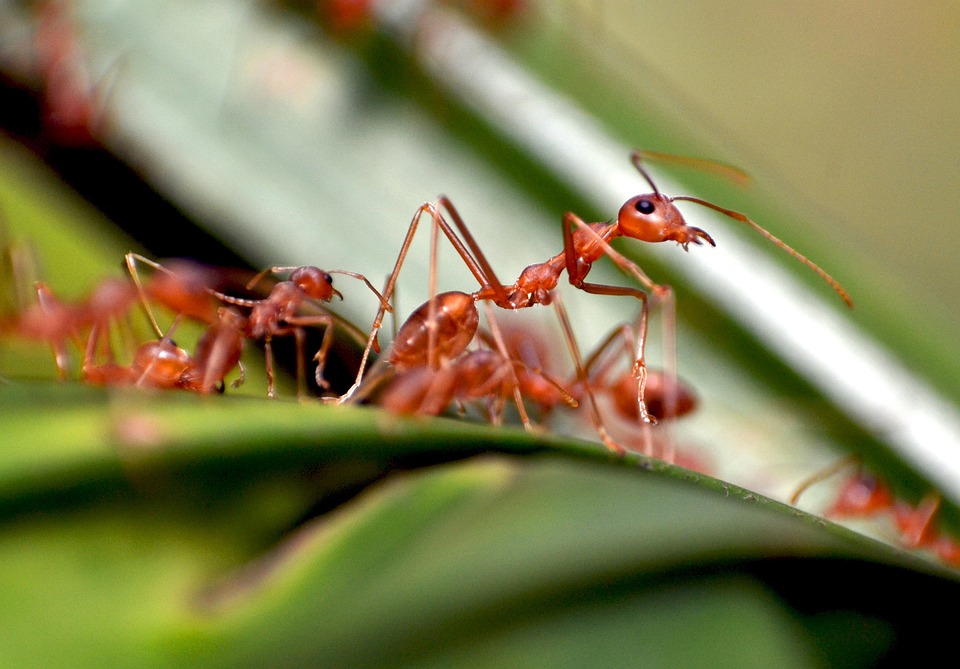Uninvited Guests: Conquering Common Garden Pests with Ease
Gardening can be a rewarding and therapeutic hobby, but nothing can ruin the fruits of your labor quite like a pesky invasion of garden pests. From insects to rodents, these uninvited guests can wreak havoc on your plants and flowers if left unchecked. Fortunately, there are plenty of natural and effective ways to control and eliminate common garden pests without resorting to harmful chemicals. In this article, we will explore some of the most common garden pests and how you can keep them at bay with ease.
Identifying Common Garden Pests
Before you can effectively combat garden pests, you need to know what you’re dealing with. Here are some of the most common garden pests you may encounter:
- Aphids: These small, soft-bodied insects suck the sap from plants and can quickly multiply if not controlled.
- Slugs and snails: These slimy creatures can devour your plants overnight, leaving behind a trail of destruction.
- Caterpillars: The larvae of butterflies and moths, caterpillars can munch through leaves and flowers in no time.
- Spider mites: These tiny pests are difficult to see with the naked eye but can cause significant damage to plants by sucking out their juices.
- Rodents: Mice, rats, and squirrels can dig up bulbs, eat seeds, and nibble on fruits and vegetables.
Control and Prevention Methods
Now that you know what you’re up against, it’s time to take action. Here are some natural and effective ways to control and prevent common garden pests:
1. Beneficial Insects
Introducing beneficial insects to your garden can help keep pest populations in check. Ladybugs, lacewings, and predatory mites are just a few examples of beneficial insects that feed on garden pests. You can attract these helpful bugs by planting nectar-rich flowers and avoiding the use of insecticides.
2. Neem Oil
Neem oil is a natural insecticide that can be used to control a wide range of garden pests, including aphids, caterpillars, and spider mites. Simply mix neem oil with water and spray it on affected plants to deter pests and prevent further damage.
3. Diatomaceous Earth
Diatomaceous earth is a fine powder made from fossilized algae that can be sprinkled around plants to deter slugs, snails, and other crawling insects. The sharp edges of diatomaceous earth cut into the pests’ bodies, causing them to dehydrate and die.
4. Row Covers
Row covers are a physical barrier that can be placed over plants to protect them from pests. These covers allow sunlight, air, and water to reach the plants while keeping out insects and other pests. Row covers are especially useful for protecting crops like cabbage, broccoli, and lettuce from caterpillars.
5. Trap Crops
Planting trap crops can help divert pests away from your valuable plants. For example, planting marigolds around your vegetable garden can attract aphids away from your tomatoes and peppers. Once the pests are drawn to the trap crop, you can easily remove and dispose of them.
FAQs
Q: Are chemical pesticides safe to use in the garden?
A: Chemical pesticides can be harmful to beneficial insects, birds, and other wildlife in the garden. They can also leach into the soil and contaminate water sources. It’s best to use natural and organic pest control methods whenever possible.
Q: How can I attract beneficial insects to my garden?
A: Planting a diverse range of flowers, herbs, and vegetables can attract beneficial insects to your garden. Avoid using chemical pesticides that can harm these helpful bugs.
Q: Will homemade remedies be effective against garden pests?
A: Homemade remedies like garlic spray, chili pepper spray, and soap spray can be effective at controlling garden pests. Experiment with different recipes to find what works best for your specific pest problems.
Conclusion
Garden pests may be uninvited guests, but with the right knowledge and strategies, you can keep them at bay and protect your plants. By using natural pest control methods like beneficial insects, neem oil, and diatomaceous earth, you can effectively combat common garden pests without harming the environment. Remember to stay vigilant and monitor your garden regularly for signs of pest infestations. With a little effort and persistence, you can enjoy a beautiful and pest-free garden all season long.


















































